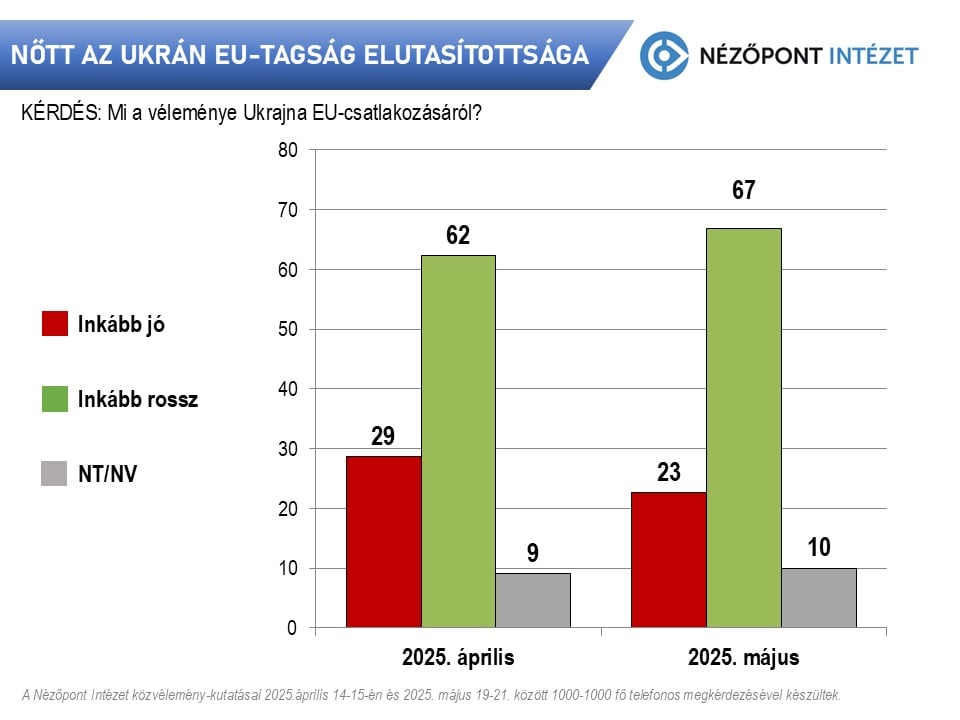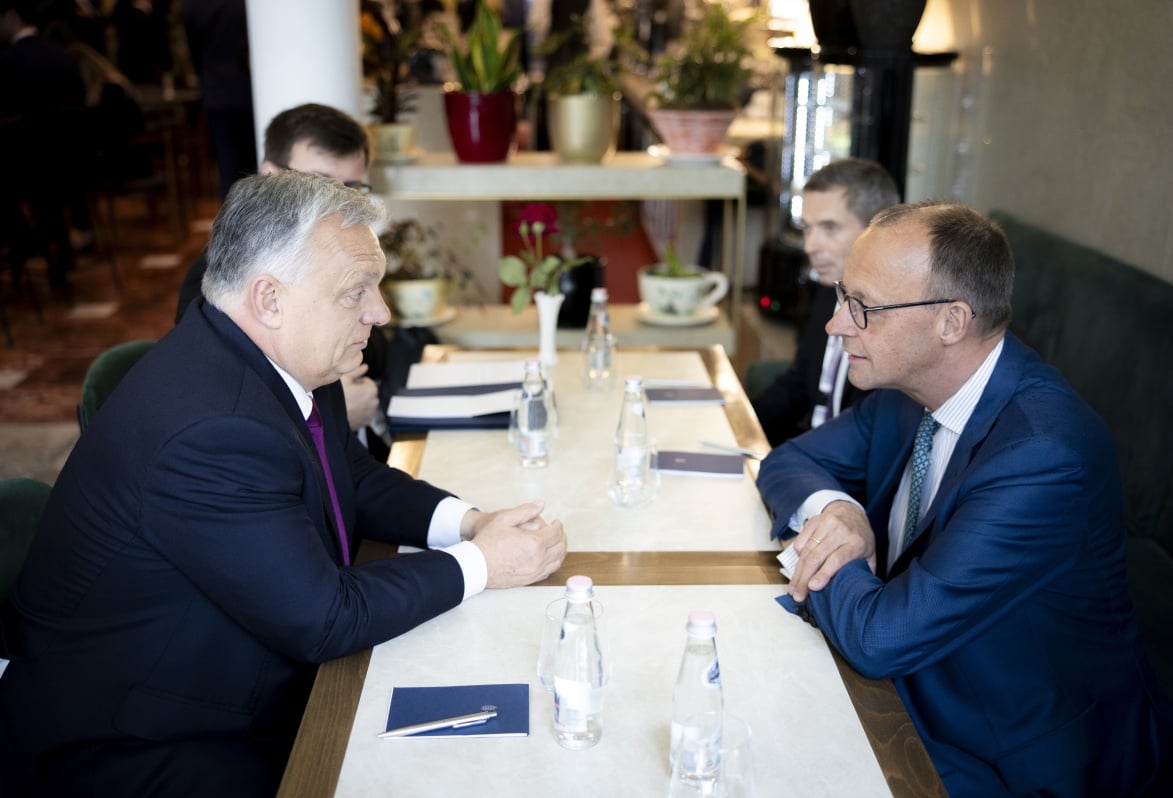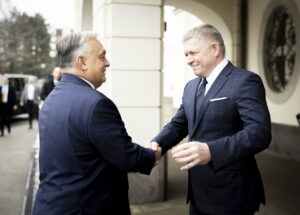
Hungarians increasingly reject Ukraine’s EU membership, with is a significant shift in sentiment ahead of a 2025 referendum.Continue reading

The Hungarian and Slovak Government’s policy towards Russia is causing an increasing amount of embarrassment to the European Union’s leadership. German Chancellor Friedrich Merz is now readying himself to retaliate against the two independent-minded nations, reported NTV based on a the German leader’s words during the WDR Europe Forum.
We will not be able to avoid a conflict with Hungary and Slovakia if we continue on this course,”
said Merz during the Forum, most likely referring to Viktor Orbán and Robert Fico’s stance on the question of negotiated peace in Ukraine, as well as the acquisition of Russian energy carriers by the two countries.

Robert Fico (R) with his Hungarian counterpart in Bratislava in January. Photo: MTI/Miniszterelnöki Sajtóiroda/Fischer Zoltán
In what sounded as a slightly belittling manner, he spoke about the two Central European countries as one’s representing only a small minority within the EU, adding that “we cannot allow the decisions of the entire European Union to be dependent on a small minority.” He was referring to the fact that the two countries have opposed further sanctions against Russia. Orbán in particular has pointed out that in his assessment, these sanctions, and the resulting energy policy, are actually hurting European consumers disproportionately more than they do with Russia.
Nevertheless, Merz has envisioned “harsher conflicts,” with the two EU Member States should they continue to defy the majority approach to sanctions and warned that the EU does have “further options” to put pressure on them. These included infringement proceedings for breaches of the rule of law.
There is always the option of withdrawing European funds from them,”
the Chancellor stated, adding that he does not want conflicts, “but if it is necessary, then we will carry it out.”
With U.S. President Donald Trump’s emphasis on ending the war in Ukraine through negotiations rather than by military means, Europe is becoming increasingly isolated and sidelined in its approach to the conflict. EU and British leaders have vowed to make up for arms shipments to Kyiv should these decrease from the U.S., and have put their faith in further economic sanctions against Russia. Currently, the 18th such package of sanctions is in the pipeline, however, Hungary and Slovakia have pointed out the ineffectiveness of these measures as far as their effect on the battlefield, as well as the mindset of the leadership in the Kremlin are concerned.
Despite all this, neither Hungary, nor Slovakia have blocked any of the EU sanctions against Russia, and have both delivered significant aid to Ukraine, including vital energy supplies. However, in March, Hungary had blocked a joint declaration on Ukraine’s membership in the EU, and has promised to block any attempts to stop Russian oil, gas, and nuclear fuel supplies by the EU. For his part, Slovakia’s Prime Minister, Robert Fico, has been very vocal in opposing further sanctions as well as Ukraine’s expedited EU membership, while in practice he has not put up any tangible resistance via vetoes, leaving Hungary to go it alone. Still, in a recent statement, the Slovak PM reacted to Merz’s statement by saying:
If someone wants to promote the policy of one single mandatory opinion, it is the end of democracy in Europe. Someone cannot threaten us here saying that if we do not obey, he will put is in our place.”
Fico has expressed his shock over Merz’s views, saying that the “world had gone mad.” If we do not respect democratic standards and national sovereignty, this could lead Europe to World War III, the Prime Minister added.
The increasingly bold tone that the German leadership is using against some of the sovereign Member States is cause for concern though. The German energy sector and industry in particular have suffered from both the Berlin Government’s climate policy as well as its rejection of Russian energy carriers. Despite the fact that German consumers and industry are currently paying some of the highest prices for their energy bills in the world, and their reliance on environmentally polluting coal and LNG-reliant grid is growing, the Merz government is determined to attack any EU Member States that are still using relatively affordable Russian gas and oil. This mindset is mirrored in their approach towards the endless packages of economic sanctions against Russia that despite earlier assurances have not succeeded in forcing the Russian economy on its knees.
Featured Image: MTI/Miniszterelnöki Kommunikációs Főosztály/Fischer Zoltán